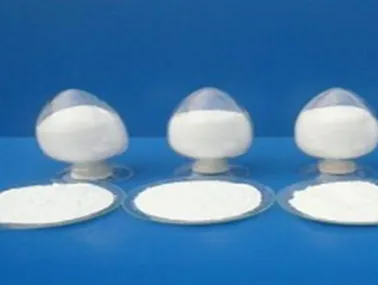
Understanding the Role of Emulsifier 407 in Food and Cosmetic Applications
Understanding Emulsifier E407 A Comprehensive Overview
Emulsifiers play a crucial role in the food industry, enhancing texture, stability, and shelf life of various products. Among the diverse range of emulsifiers, E407, also known as carrageenan, stands out for its unique properties and widespread use. This article explores what E407 is, how it functions, its applications, and the debates surrounding its safety and efficacy.
What is E407?
E407, or carrageenan, is a hydrocolloid derived from red edible seaweeds, primarily from the genera Chondrus, Gigartina, and Eucheuma. The extraction process involves boiling the seaweed in water, followed by precipitation and purification steps to isolate the carrageenan. E407 is commonly classified into three types kappa, iota, and lambda, each with distinct gelling and thickening properties.
How E407 Works
Carrageenan acts as a stabilizer and thickener by interacting with water molecules and other ingredients to form gels and viscous solutions. Its ability to create stable emulsions is attributed to its polysaccharide structure, which can bind water and fat, preventing separation. This emulsifying property is crucial in products such as dairy, sauces, and desserts, where a consistent texture is essential.
Applications of E407
The use of E407 extends beyond traditional dairy products like chocolate milk and ice cream; it also finds applications in a wide range of food and non-food products.
1. Dairy Products In yogurt and dairy desserts, E407 is used to improve texture and prevent whey separation. It can also enhance mouthfeel, creating a creamier product. 2. Meat Products Carrageenan is often incorporated into processed meats to retain moisture, thereby improving texture and longevity.
emulsifier 407

3. Beverages E407 is utilized in beverages, including fruit juices and plant-based drinks, to stabilize emulsions and improve viscosity.
4. Cosmetics Beyond food, carrageenan is used in cosmetics and personal care products for its thickening and stabilizing properties.
5. Pharmaceuticals E407 is also found in various medical products, where it serves as a gelling agent in medications and supplements.
Safety and Controversies
Despite its widespread use, E407 has drawn scrutiny from health advocates and researchers who question its safety. While regulatory agencies, including the FDA and EFSA, have deemed carrageenan safe for consumption, some studies have suggested potential inflammatory effects in certain individuals. Critics argue that the potential for gastrointestinal issues, such as bloating and discomfort, warrants further investigation.
Moreover, the processed form of carrageenan, particularly degraded carrageenan, has been associated with adverse health effects in animal studies. However, it is important to note that this form is different from the food-grade carrageenan used in commercial products.
Consumers are increasingly aware of ingredients in their food, leading to a demand for transparency. As a result, many brands have started labeling their products clearly, indicating whether they contain carrageenan. Some have even opted for carrageenan-free formulations, catering to those who wish to avoid this additive.
Conclusion
E407, or carrageenan, is a versatile emulsifier that serves multiple roles in the food and cosmetic industries. Its ability to stabilize and enhance texture makes it a valuable ingredient in various products, from dairy to personal care items. While safety concerns exist, regulatory bodies continue to support its use in food products. As consumers become more discerning about their choices, the discourse surrounding E407 will likely evolve, prompting manufacturers to consider sourcing alternatives or addressing consumer concerns more transparently. Ultimately, understanding E407 is essential for both consumers and producers who navigate the complex landscape of food additives and their implications on health and quality.
-
Aluminum Hydroxide: Quality Gels & Dried Gel AntacidNewsAug.31,2025
-
Buy High-Quality Trichloroisocyanuric Acid for Sale | TCCA 90% SupplierNewsAug.30,2025
-
Pure Sodium Dichloroisocyanurate Dihydrate | Powerful DisinfectantNewsAug.29,2025
-
Industrial Chemicals: Quality & Purity for Every IndustryNewsAug.28,2025
-
Nitrile Rubber Honoring Strict Production StandardsNewsAug.22,2025
-
Aspartame Ingredients Honoring Food Safety ValuesNewsAug.22,2025
-
Fertilizer for Balanced Plant NutritionNewsAug.22,2025
Hebei Tenger Chemical Technology Co., Ltd. focuses on the chemical industry and is committed to the export service of chemical raw materials.
-

view more DiethanolisopropanolamineIn the ever-growing field of chemical solutions, diethanolisopropanolamine (DEIPA) stands out as a versatile and important compound. Due to its unique chemical structure and properties, DEIPA is of interest to various industries including construction, personal care, and agriculture. -

view more TriisopropanolamineTriisopropanolamine (TIPA) alkanol amine substance, is a kind of alcohol amine compound with amino and alcohol hydroxyl, and because of its molecules contains both amino and hydroxyl. -

view more Tetramethyl Thiuram DisulfideTetramethyl thiuram disulfide, also known as TMTD, is a white to light-yellow powder with a distinct sulfur-like odor. It is soluble in organic solvents such as benzene, acetone, and ethyl acetate, making it highly versatile for use in different formulations. TMTD is known for its excellent vulcanization acceleration properties, which makes it a key ingredient in the production of rubber products. Additionally, it acts as an effective fungicide and bactericide, making it valuable in agricultural applications. Its high purity and stability ensure consistent performance, making it a preferred choice for manufacturers across various industries.





